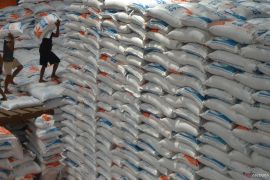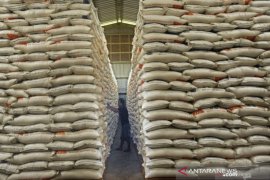During the "BKPerdag #2 Analysis Result Dissemination" discussion in Jakarta on Friday, he stated that in order to safeguard these industries, the government needs to identify imported products that could harm labor-intensive industries and micro, small, and medium enterprises (MSMEs) in the domestic market.
"Why are these labor-intensive industries concerned? It's because they employ a large number of workers. Therefore, if there is an increase in imports that harms domestic industries, these labor-intensive sectors are relatively more vulnerable to losses," he explained.
The nine industries categorized as labor-intensive are food, tobacco processing, apparel, wood, articles of wood and cork, textiles, non-metal mineral goods, leather, leather goods and footwear, furniture, and rubber, and goods made of rubber and plastics.
According to data from Statistics Indonesia (BPS) in 2020, the number of employees in these nine sectors reached 12.5 million people, which accounted for 80.6 percent of the total major, medium, and micro industry workers.
Some of these sectors have experienced an increase in their sectoral Gross Domestic Product (GDP), but at the same time, their imported counterparts have also increased. This trend is observed in the non-metal mineral goods and rubber, rubber, and plastic goods industries, as well as the tobacco processing industry.
According to Alhayat, the non-metal mineral goods and rubber industries may record a decline due to the higher import rate in 2022 compared to 2019.
Meanwhile, the tobacco processing industry is likely to experience a decline in performance due to the significant annual increase in cigarette tax.
China and several ASEAN countries such as Malaysia, Vietnam, and Thailand are often the main suppliers of imported products to Indonesia.
Regarding goods imported from China, there is an indication that they are exported at a lower price than similar products in China's domestic market.
"To address this, the government can protect the domestic industry through trade remedies such as anti-dumping and safeguard measures, in accordance with the applicable procedures and regulations," Alhayat stated.
Related news: Indonesia's trade ministry to accommodate exports to Japan via e-CO
Related news: Trade Ministry to sanction merchants selling MinyaKita in bundles
Translator: Maria C G P, Fadhli Ruhman
Editor: Anton Santoso
Copyright © ANTARA 2023












